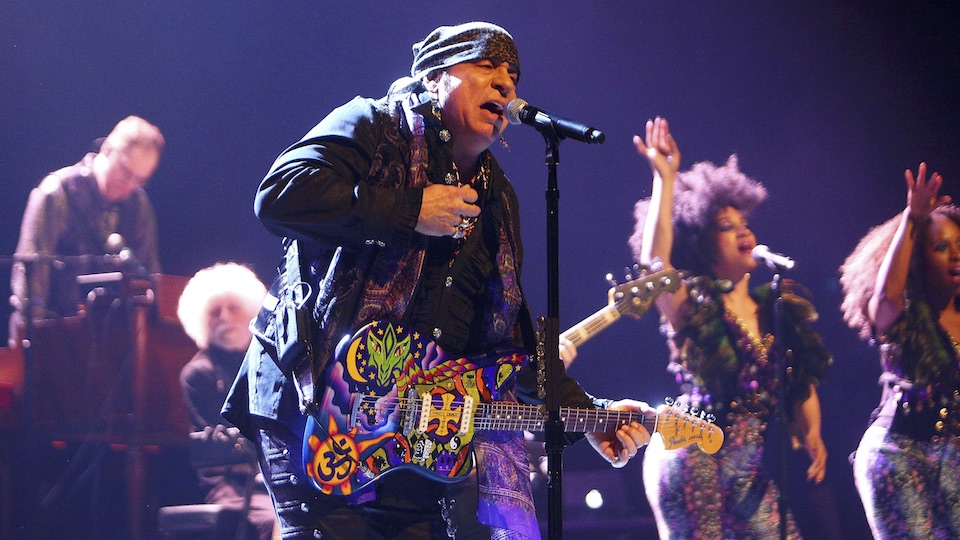
Leaving aside The Black Keys and The White Stripes (and a couple other notable two-piece bands such as The London Souls and Fred Cracklin), you generally need four parts to exist as a rock and roll band: guitar, bass, drums and vocal. Sting singing while handling the bass for The Police, and Eric Clapton and Jack Bruce sharing vocals while manning the guitar and bass, respectively, in Cream, are but two examples of the classic rock trio. Holding no instrument, Robert Plant and Roger Daltrey were front men who sang (and screamed), thereby incorporating the most standard four-person arrangement bands have followed since rock’s inception. The Rolling Stones and Aerosmith both doubled up on guitarists to have five members; Lynyrd Skynyrd added piano to reach a roster of six; featuring a violin and cello, ELO’s vintage lineup attained a level of seven participants. But when Steven Van Zandt led his namesake band, Little Steven & The Disciples Of Soul, onstage for their November 6th show at New York City’s Beacon Theater, I looked around and started counting people: A five-piece horn section, three backing singers, two keyboards, a drummer and a percussionist, bass, guitar, and Van Zandt himself, flamboyantly looking like a cross between a Jersey Shore gypsy and a Jack Sparrow pirate, on guitar and vocals. That’s 15. Little Steven, very much contrary to his most identifiable nickname, has always done everything big.
Let’s start with the most obvious. For most of the last fifty years, Van Zandt has been the right-hand man, the “Bobby Jean” and “Blood Brother,” to the biggest rock and roll star of my lifetime, Mr. Bruce Springsteen, in a Hall of Fame outfit known as The E-Street Band. Their association and friendship even pre-dates E-Street, with a first meeting taking place in the late ‘60’s, and playing in embryonic bands together in the early ‘70’s. They’ve been through it all side-by-side – save for a decade or so bridging the ‘80’s and ‘90’s – with Little Steven steadfastly at the stout shoulder of The Boss. No retreat, baby, no surrender. Yet at the same time as Van Zandt was officially joining the E-Street Band for “Born To Run” in 1975, he was also co-founding Southside Johnny & The Asbury Jukes, for whom he wrote, arranged, produced, and performed on their first three albums, “I Don’t Want To Go Home,” “This Time It’s For Real,” and “Hearts Of Stone,” together both the formative and definitive career highlights for the band. After taking a brief pause in order to produce a stellar comeback album, “Dedication,” for legendary R&B singer Gary U.S. Bonds, Van Zandt initiated a solo project immediately thereafter, with the creation (and first iteration) of the powerhouse Little Steven & The Disciples Of Soul. The critically acclaimed debut record, “Men Without Women,” was released in 1982, the first of five searing solo albums throughout the ‘80’s, including the follow-up, “Voice Of America,” on which Van Zandt’s material first became explicitly political.
In terms of global and historic impact, however, his next album made a significantly bigger mark. Continuing his new-found political engagement but with a fresh and heightened focus, in 1985 Little Steven founded and then led the music industry activist group Artists United Against Apartheid as an action targeted directly against the Sun City resort in South Africa. The resultant album and song, “Sun City,” contained a truly remarkable who’s-who of 49 recording artists, somehow assembled and coordinated by Van Zandt: Bob Dylan, Lou Reed, Miles Davis, Herbie Hancock, Pete Townshend, Keith Richards, Ringo Starr, Tom Petty, Joey Ramone, U2, Run-DMC, Hall & Oates, Peter Wolf, Pat Benatar, Bonnie Raitt, Jackson Browne, Peter Gabriel, George Clinton, Afrika Bambaataa, Ruben Blades, Jimmy Cliff, David Ruffin, Eddie Kendricks, and yes, Bruce Springsteen – all of whom pledged to never perform at the lavish but ignoble destination located outside Pretoria and Johannesberg. The song was modestly successful in sales, but far more so with respect to its revolutionary goals, playing a pivotal part in what soon became a broad international movement to successfully overthrow apartheid rule. Over time, rock artists have often taken on contemptible radio stations or nefarious record companies; Little Steven took on a nation and a fiendish, malevolent system of governance. And miraculously won. Now that’s big.
And somehow we’re merely scratching the surface. With a career heretofore dedicated to music and advocacy, Van Zandt for certain had no acting experience. Then a relatively anonymous writer and producer, David Chase, who was in the process of putting together a new HBO drama called The Sopranos, offered Little Steven one of the core roles after seeing him humorously deliver the induction speech for The Rascals at the 1997 Rock and Roll Hall of Fame awards show (and before realizing that Van Zandt had literally never acted). As Silvio Dante, the level-headed but ruthless mob consigliere, Van Zandt played a critical and fan-favorite role for all six seasons (1999 – 2007) in what is widely regarded as the greatest television series of all time. Not bad for a novice. To follow that up, in 2011 Van Zandt wrote, executive produced, and starred in the much-admired series Lilyhammer, which ran three seasons and happened to be the first-ever original, exclusive content produced for a platform which has since gained a bit more traction: Netflix. Seriously, can you believe this guy?
But it goes on. Improbable acting chops notwithstanding, Van Zandt’s life has invariably been devoted to a love of music, a deeply ingrained appreciation for it’s historical roots and far-reaching cultural significance, a stunningly encyclopedic knowledge thereof, and the fervent wish to enlighten – one might say, to educate – the populace of it’s immeasurable charms. To that end, this visionary man of seemingly countless concurrent careers has found two more successful, long-term outlets. Since 2002, Van Zandt has hosted the syndicated radio show Little Steven’s Underground Garage, now broadcasting on over 130 stations in over 200 markets internationally, which celebrates garage rock and a host of related rock sub-genres from the 1950’s to the present day. Rolling Stone calls it “Mind-blowingly great.” One fan, Eddie Vedder, states “It’s the first thing I listen to in the morning,” while another, Billie Joe Armstrong of Green Day, said of it, “It’s the best Rock and Roll Radio show in the world. Period.” Two years following the show’s inception, Sirius Satellite Radio recruited Van Zandt to create its first original content, which became the station of the same name – channel 21, locked-in on my radio – playing a remarkable breadth of rock’s pioneers to up-and-coming bands, all tied together by Steven’s singularly insightful and jocular monologues (there’s no talking allowed in my car once these are underway). He also created the Outlaw Country station on channel 60, the “country cousin” to the “Underground Garage” (and my co-favorite among the vast Sirius roster). While it features healthy doses of Willie, Waylon and Merle, I can assure that it’s not your grandfather’s country radio, as it blends Americana, roots, alt-country, and southern rock to form the most diverse and best new music showcase anywhere on the digital dial. Said the Springsteen internet platform, BruceSpringsteen.net, “Little Stevie Van Zandt might currently be the planet’s most charismatic, dedicated and visible crusader scrapping to preserve the dirty purity of Rock ‘n Roll.” And hence, conquering the airwaves through such broad-based historical perspective led Little Steven on one further quest, his current and perhaps most passionate campaign, that of music education. Witnessing the environment in which schools are facing constant cuts in arts funding, and the steady diminishment and deterioration in cultivating the arts in public school curriculums, Van Zandt created the Rock and Roll Forever Foundation, and subsequently it’s subsidiary program, Teach Rock, whose mission statement reads, “To empower teachers and engage students by using popular music to create interdisciplinary, culturally responsive education materials for all 21st century classrooms.” The Teach Rock project, which Little Steven himself simply calls, “The biggest thing I’ve ever done in my life,” brings rich, multi-media and archival educational materials to teachers and students everywhere – at no cost – with lesson plans and resources, aligned with Common Core and other national and state educational standards, to help teachers integrate the history of popular music to classroom work from social studies, media, science, geography, and language arts.¹ Quite simply, they’re doing incredible work; an enormous undertaking in pursuit of nothing less than contributing to a reformation of public education. Little Steven, once again, shooting extremely big. So: music, activism, television, radio, and now education…Never mind that old gray beard in the famous Dos Equis beer campaign, I’d be willing to say that Steven Van Zandt is, in fact, “The Most Interesting Man In The World.”
Which brings me back, finally, to the recent concert appearance, the one in which he arrived as one of those 15 musicians crowding the Beacon boards (late in the night to be joined by even more, four additional dancers – one of whom being his wife, Maureen). The show was, well, bigger than big, it was huge. With the re-boot of his solo band, The Disciples Of Soul, who re-launched in 2017 with their formidable album, “Soulfire,” and then followed it with 2019’s release, the cinematic, pseudo-psychedelic concept record, “Summer Of Sorcery,” Van Zandt is, as always, going big – like old-fashioned, Lieber and Stoller, Brill Building, Phil Spector, “Wall Of Sound” big. And he’s incorporating elements from everywhere and everything; over the course of the two-hour summer thematic show (though Van Zandt made sure to counsel the late fall audience that “summer is a state of mind”), the band tirelessly blasted through an arsenal of songs and styles spanning rock, pop, doo-wop, soul, blues, funk, reggae, Latino, and probably a bunch more I can’t remember. The arrangements, the choreography, the costuming, the melodies, the soloists – you guessed it, all big. What at times felt like a major rock show performance while at others a Cirque De Soleil extravaganza, was at all times wildly entertaining. One of the unquestioned highlights for me was ‘Superfly Terraplane,’ the first single off the current album, a bombastic, stage-shaking number, and our featured song here. Like most everything else, it practically overwhelmed the enthusiastic crowd with characteristic sound and fury until after four-and-a-half minutes it stormed to a sudden stop, leaving both performers and audience members gasping. It was certainly a big musical moment. Given the right circumstance, who knows, perhaps it could even have been a transformative one. I’m sure there’s at least one person who deems it possible: “I know it sounds a bit silly,” Little Steven has been quoted as saying, “but I do believe Rock and Roll can change the world.” And that, I would say, is a pretty big deal.
¹this writer is presently working on one to provide an introduction to economics and applied mathematics.
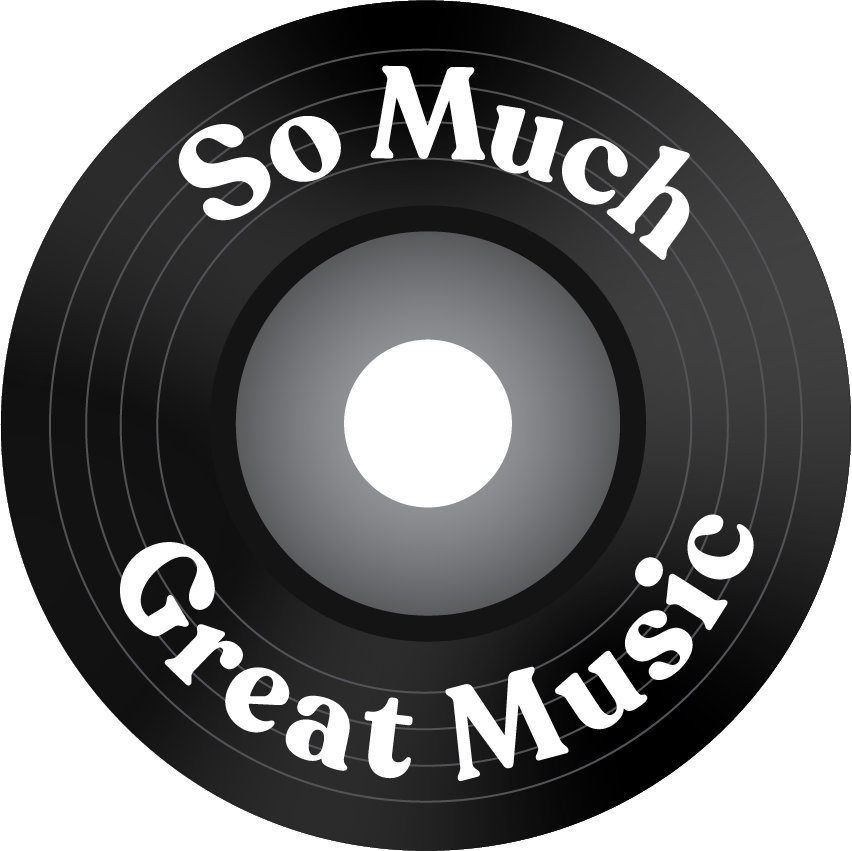


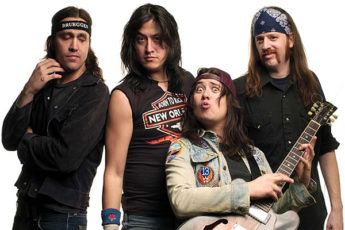
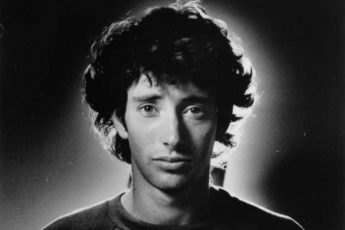
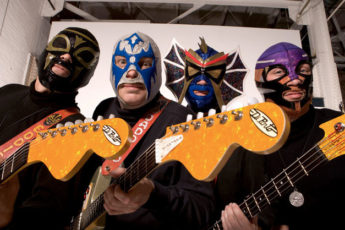
Monya McCarty
November 11, 2019 8:25 pmNice write up, thank you. And I agree with it all. Huge fan. Peter Wolf called him Rock’n’ Roll’s best friend at that concert.
Bruce compared him to Groucho. I would compare him to Mel Brooks: creator, producer, political irreverent. Stevie is a true Renaissance man. And so sweet to his fans.
Bill G.
November 11, 2019 8:33 pmThanks, Monya!